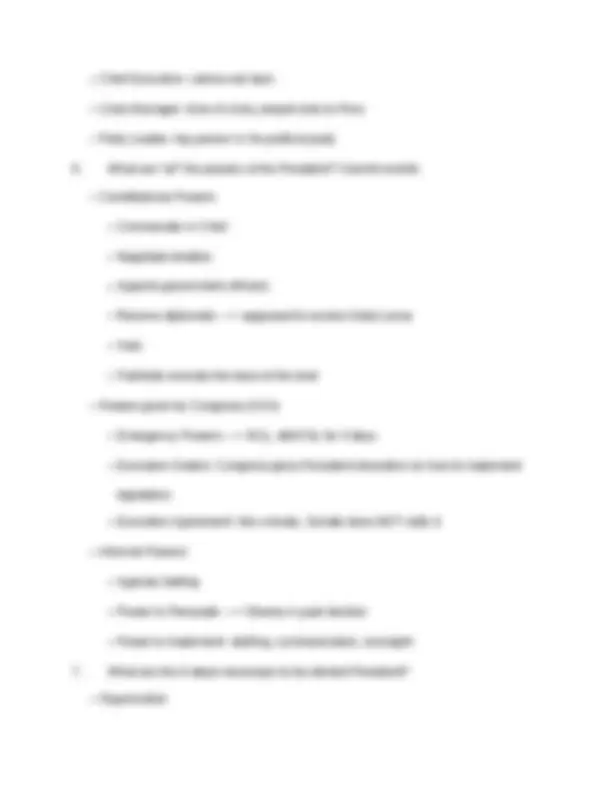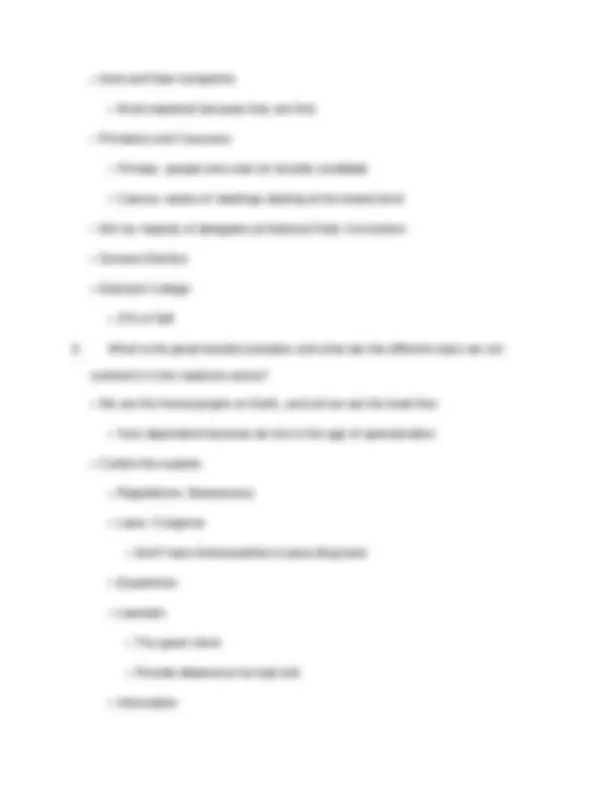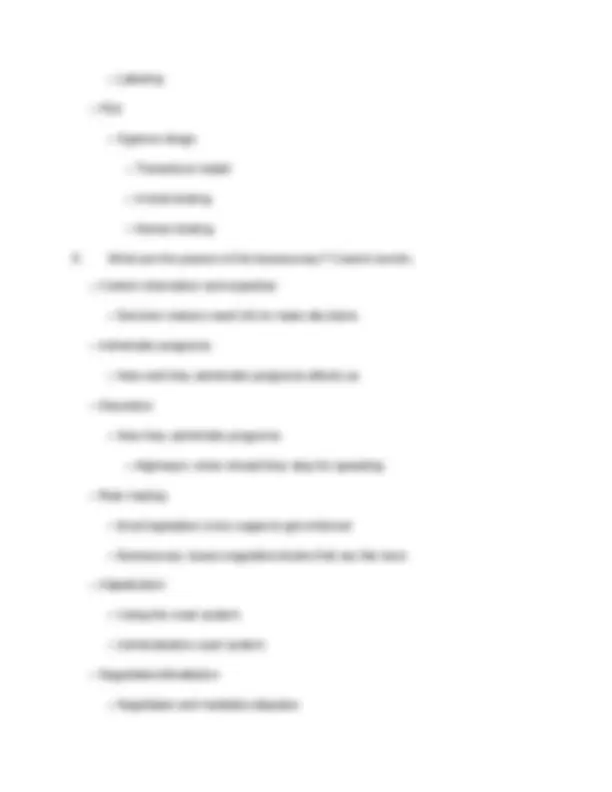





Study with the several resources on Docsity

Earn points by helping other students or get them with a premium plan


Prepare for your exams
Study with the several resources on Docsity

Earn points to download
Earn points by helping other students or get them with a premium plan
Community
Ask the community for help and clear up your study doubts
Discover the best universities in your country according to Docsity users
Free resources
Download our free guides on studying techniques, anxiety management strategies, and thesis advice from Docsity tutors
An overview of the legislative process in the us congress, from the initial proposal stage to the final signing of a bill into law. It also covers the roles and powers of the president in various areas, including foreign policy and economic leadership. Students will gain insights into the intricacies of the political system and the hurdles that proposals must overcome to become laws.
Typology: Study notes
1 / 6

This page cannot be seen from the preview
Don't miss anything!



